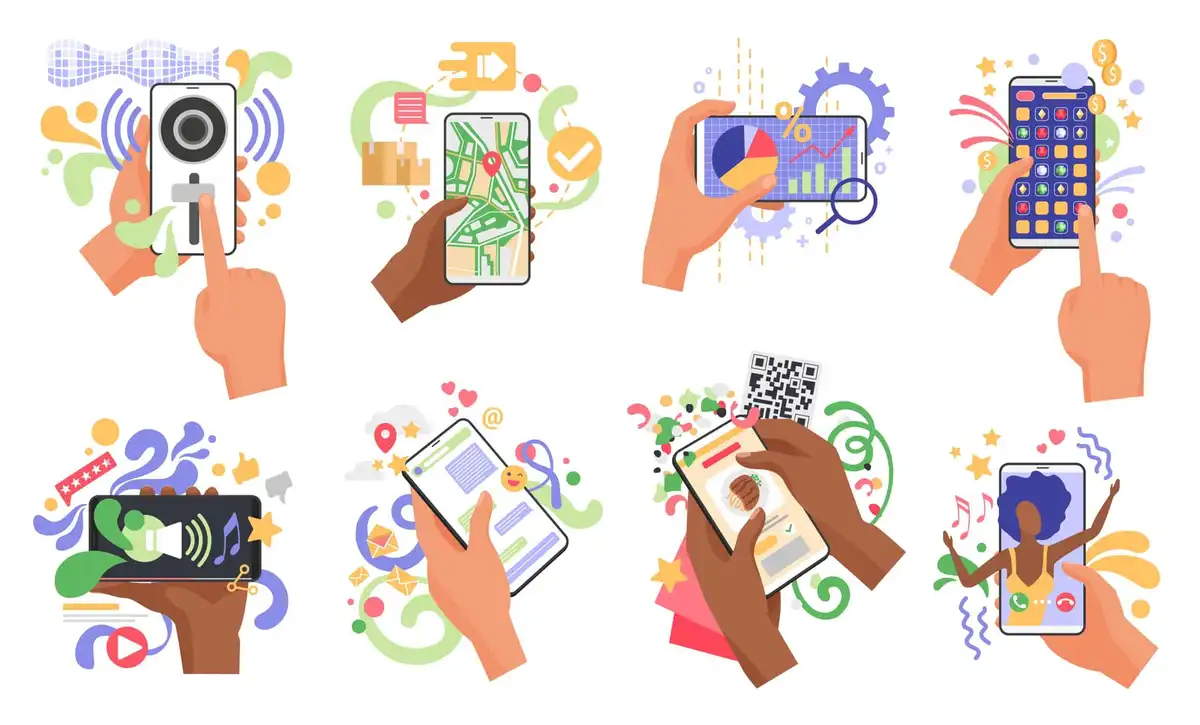For some companies, there are a lot of buzzwords and terms that they like to use to demonstrate that they “care” about users. They champion those words in product management, product development, and product design. However, the same companies apply patterns in their designs that could affect their users and not in good ways. Do you care about your users or do you care more about your metrics? I would like to mention several issues I see with modern applications that could point to the detriment of their users. I will give examples but they are not a criticism for those particular apps. They are gripes about our industry in general and we need to find ways to do better.
Infinite Scroll
Infinite scroll is one of the most dangerous patterns in social media sites and apps because it keeps the users hooked on an endless cycle. Infinite scrolling has the advantage of users not having to keep pressing next or go over the pagination links (Loranger, 2014). However, it could trick our brains in a way that becomes addictive and harms the productivity of the users. A good example is LinkedIn which is a network for professionals sharing information and staying connected, it encourages a lack of productivity because users are constantly scrolling instead of doing their work.
This pattern is not only harmful to the productivity of online users, it also hurts our kids. Today, kids and teens use the internet as a way to stay connected and do homework online. Nevertheless, some use social media and websites that contain infinitive scrolling which increases the screen time and reduces real-world interaction between them. Even Senator Josh Hawley proposed a US law to ban infinite scrolling and autoplaying videos as they are considered harmful.
To me, users should always have control of the interface. But, with infinite scrolling, the interface has control over the users.
Unreadable Text
This is a trend that has been happening for a while now. The older we get, the worse our eyesight. Nevertheless, I see that a lot of websites and even applications are neglecting a growing population of web users with their design. Kevin Marks wrote a beautiful article on how the web became unreadable. I invite you to read it because I share the same feelings towards modern design. Similarly, Don Normal (Yes! That Don Norman) wrote how the “user-friendliness” of today’s websites horrifies him for similar reasons.
I am surprised to see that even after so much research and talking about inclusion, impaired users and the elderly are neglected by UX designers considering that this is an easy fix.
People that are in their 40s today, were able to experience the web and had grown old using the web. This is very different from people in their 40s twenty years ago because there were not as many web users and a lot of people never used the internet. Thus, the population of 40+ users is large and should be considered in your designs. In short, your text should be large enough and have a good contrast ratio.
Dark Patterns Everywhere
The web is full of dark patterns that trick users into doing stuff that they don’t want. I suggest researching them so you avoid this problem in your work. But, one of these patterns is ConfirmShaming which is the use of wording in a way that makes the user feel bad about his/her choices in the UI when it is not the option that the team wanted to choose.
I am fine with you thinking that something could be relevant to me. However, if I decide that I don’t want it or don’t need it, it would be nice for the application to just let me be. There is no need for the wording of the message to make users think that they are stupid if they don’t want something. If you care about your users, treat them with respect.
Delete Account Nightmare
Have you tried deleting your account in some applications today? It might be impossible because some companies just decided that if you sign up, you are going to be in their databases for eternity. If I no longer need your services, please let me go. Also, remove my information from your servers in case the system is hacked, I am not damaged in the process.
Autoplay for Videos
Did you know that in some countries people don’t have unlimited data plans? Therefore, if they open your app or visit a website that autoplays videos, they are using that limited data for videos that they might not want or need to watch. Furthermore, they are draining their batteries when the video plays as well.
Some users still need to go to the store and buy a card to have internet on their devices. These are people with low income who try to be connected to friends and family while also, they would like to escape their struggle by reading or interacting on the web. However, if you autoplay videos or even have a website that delivers a lot of unnecessary information and resources (these resources are unneeded JavaScript, HTML, and CSS), it will use a lot of its data plans in something that the user did not want nor need. Thus, consider your low-income users and the performance of your application.
Selling User Data
The popular phrase that says “If you are not paying for the product, you are the product” makes a lot of sense. The business model of a lot of apps is being installed in your device so they can track and sell everything you do. I recommend this article in The New York Times on how mobile apps are invading your privacy and selling that information to third parties. It might look like “anonymous data”, but details about a particular user could be extrapolated by combining different sources. So, even when they promise that your information will be carefully shared with third-party vendors, know that you are the product and you are paying with your private information.
Data Privacy
Who would think that a company like Facebook which has endless resources to pay the best engineers in the world was storing passwords in plain text? In 2012, millions of passwords were stored as plain text at Facebook while over 20,000 employees could have access to them. Even a junior developer knows that you should never do that. That tells us that privacy does not matter to Facebook. There were other cases where Facebook exposed users’ data to third parties. For example, Cultura Colectiva exposed more than 140 GB of user data from Facebook.
I am not arguing that Facebook needs to be bulletproof to hackers because if it is online, it could be hacked. I am questioning the use of plain text for passwords for millions of users in 2012 which is an invitation to hackers.
Useless Algorithms
The implementation of the algorithm that Facebook uses sets what type of posts you are going to see. Sometimes, close friends post something and you never see it in your timeline because Facebook “decides” that it is not relevant to you. LinkedIn is very similar in their approach showing a lot of posts from people that are not part of my contacts. If I want to see posts in a group, I would like to go directly to the group to see them there. Also, those irrelevant polls are just cluttered on the page because you don’t learn anything from them.
Back on Facebook, I lost a very good friend from college and I learned that she died when I went to congratulate her on her birthday. I never saw anything on my feed from the friends commenting on her wall. Also, I only get posts from a handful of friends from over 500 people that I had on my account. This was the tipping point for me to forget about this social media application because it is not showing me what I consider relevant information including the bad news of losing a dear friend. Facebook wants to pretend that it knows more about what I want than myself.
Conclusion
To conclude, this is not a criticism of those particular applications but a way to encourage product managers, product designers, and engineers to think about the users and how the users could benefit from improvements to their applications.
The users should be at the forefront of any decisions made by the team on a product. Also, solving users’ needs cannot be creating new needs by solving previous ones. If you are solving a problem but creating another, you will be in an infinite loop of problems and solutions. If I want to interact with friends and family, I should not have the problem of my data being stolen or my information being sold to marketers without consent. Empathy goes a long way and to be the users’ champion, everything must be considered. I can keep going but I think I made my point on how we need to treat users and improve their experience.
Reference
Loranger, H. (2014). Infinite Scrolling is Not for Every Website. Nielsen Norman Group. https://www.nngroup.com/articles/infinite-scrolling/




